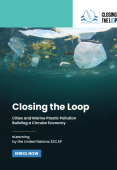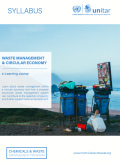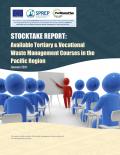Online

This course shares the latest knowledge and approaches to measuring and managing marine plastic pollution from land-based sources to achieve local, national and regional goals related to sustainable development.
Online

This course provides participants with tools to design and implement national waste management systems.
Online

This course provides an overview of the areas where women are typically more exposed to chemicals than men and the steps they can take to protect themselves.
Online
Empower Parents' and Caregivers' Understanding of and Knowledge on Highly Hazardous Pesticides
ChatGPT Potenciar la comprensión y conocimiento de padres y cuidadores sobre plaguicidas altamente peligrosos

Participants will learn about highly hazardous pesticides, their uses and harmful impacts, and what role they can play to safeguard future generations.
Online

This online course aims to educate the public at large and build a broad, woman-led leadership for addressing issues related to toxic chemical exposure.
Online

This course aims to empower policymakers, infrastructure planners and investors to understand the economic and financial performance of nature-based infrastructure and its co-benefits in comparison with “built” or “grey” infrastructure.
Online
Online
This e-course reviews a set of tools that can help development professionals screen for climate change and disaster risks during project preparation and sectoral- and national-level planning.
Online

This course course examines shifts in infrastructure needs during the COVID-19 crisis and ways to advance new projects critical to sustainable and inclusive recovery amid difficult post-pandemic financing conditions.
Online

This report provides details of waste management courses offered in the 15 PacWastePlus countries.
Online

This online course is designed to equip those with the knowledge and tools required to apply systems thinking to complex food systems challenges in an integrated manner.
